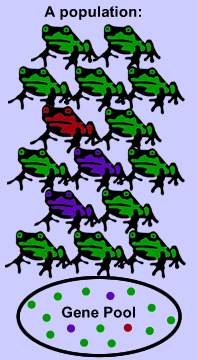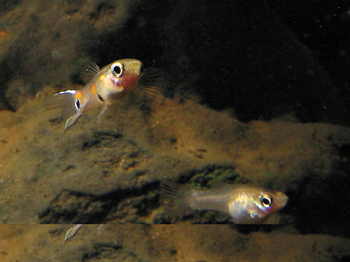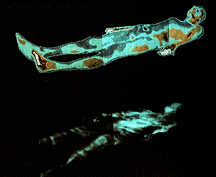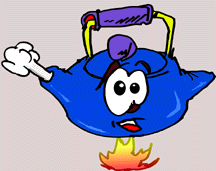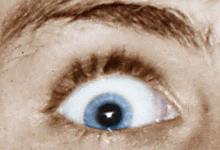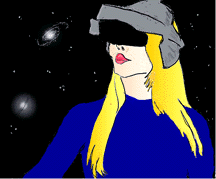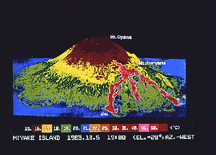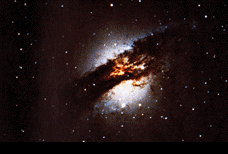Evidence of Evolution
Click on image for full size
Windows to the Universe original image
Genetics of Self-Sacrifice - streaming RealVideo (1 min. 19 sec.) from NSF
Microevolution: Individuals Don’t Evolve, Populations Do
People change throughout their lifetime, growing taller and sometimes wider, curling and cutting their hair. However, each individual’s genetic make-up stays the same. That means that these changes are not evolution. Evolution on a small scale, called microevolution, happens as changes happen to the genetic make-up of a group of organisms of the same species over many generations.All of the versions of all of the genes in a population of a species are called a gene pool. A gene pool changes over many generations. Small changes in the amount of each type of gene can happen for a number of reasons.
- Gene mutation: An error during cell division can create a new type of gene. That new gene is a small part of the gene pool. It can be passed on to the next generation. If the new gene is useful, it might become a common part of the gene pool.
- Gene flow: If new individuals of the species move into or out of the region, it can affect the gene pool. For instance, the only people in North America were once Native Americans. Immigration from other parts of the world over the last several hundred years has changed the gene pool of the origional people a lot.
- Genetic drift: The amount of each gene in a gene pool can change over time because of chance events. For instance, if a few individuals leave a population and establish a new one, by chance their gene pool may not have the same frequency of genes as in the population they left, but those genes become the gene pool of the new population.
- Natural selection: Some genetic differences will improve the chances of survival for individuals that have them. For instance, hawks with large talons may be more likely to survive than hawks with small talons. Since the surviving ones make the next generation, the genes for large talons are more likely to be passed on. Eventually, the gene pool shifts towards large talons.
Microevolution is changes in the gene pool of a population over time that result in changes to the varieties of individuals in a population such as a change in a species' coloring or size. If the changes are over a very long time and are large enough that the population is no longer able to breed with other populations of the original species, it is considered a different species. This is called macroevolution. Click the "forward" button at the top of this page to learn more about the evidence for macroevolution!


